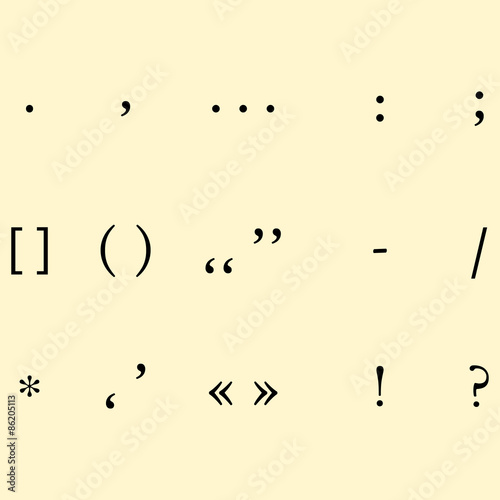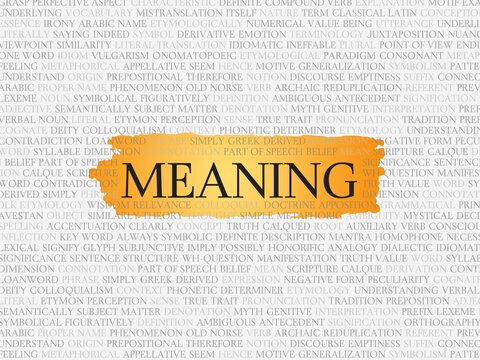Everyone knows the importance of using proper language and punctuation while expressing oneself. But grammar and punctuation are different things altogether. The two most essential components of any language are proper grammar and punctuation. Grammar is the study of how sentences are created in a language. In contrast, punctuation uses standard signs to break up text and make it easier to read.
Punctuation and grammar go hand in hand. A sentence that uses correct grammar but lacks punctuation is incomplete, and vice versa. For complete fluency in a language, competence in both areas is required.
Let’s take a closer look at the distinctions between grammar and punctuation. It will help us better understand how crucial a part they play in communication.

Is punctuation grammar?
Punctuation refers to the use of different signs in a sentence to make it easier to read and understand. Any symbol that clarifies and enhances a sentence is punctuation.
Grammar and punctuation are in charge of most linguistic conventions, though not all. Common sense is the foundation upon which punctuation rules rest. These rules should be bent to better help the reader “get” what you’re trying to say. It’s essential to use proper punctuation. Yet, some guidelines allow for more flexibility.
In casual writing, we denote an exclamation point using punctuation marks. The comma, colon, semicolon, apostrophe, exclamation mark, question mark, period, a hyphen, and parenthesis are all prominent punctuation marks. The only time punctuation marks like periods and commas go inside quotation marks in British English is when they are part of the actual quote. Otherwise, they go outside the quotation marks and behind the concluding marks. You won’t often come across any punctuation marks in academic writing.
Understanding Grammar and Punctuation:
Before making any quick judgments, we need to get all the facts about grammar and punctuation.Grammar studies how humans put meaning into sentences by putting words together. The word “punctuation” means adding symbols that make sentences easier to read.
Role Of Punctuation In English Grammar:
Some illustrations will better make you understand the role of punctuation in grammar;
The colon has several non-grammatical uses. It includes the expression of tension, relations, professional interactions, and links. Everything before the colon must make sense as a complete sentence; anything that comes after the colon is up to the writer.
Perhaps the most challenging punctuation mark to use correctly is the semicolon. Don’t use it if you aren’t sure what it means. Instead, start a new phrase with meaningful content.
Are They Similar?
Some people understand punctuation and grammar, while many do not. The grammar of a language refers to its rules for constructing sentences. It is not enough to utilize words in their correct spelling; they must also make sense when put together.
Some people use grammar and punctuation interchangeably, but they serve different purposes. Punctuation marks direct the reader by emphasizing key points, raising questions, and conveying sentiments about the sentence’s subject or verb.
They help guide readers. But where they are in a sentence can also make some words more important than others. Therefore, it’s crucial to think about how you want your audience to comprehend your work when making this decision.
When writing, grammar is all about how sentences are put together, how words flow, and what words we choose. Thus, our thoughts must be well-communicated, and there is no ambiguity.
The most typical punctuation marks are the period (full stop), question and exclamation marks, comma, semicolon, colon, brackets [], and the ellipses… Combining these yields a wide range of results.
The Distinction Between Grammar And Punctuation:
Meaning:
Grammar is a system of rules that determines how words, sentences, and clauses are constructed in a language.

Punctuation refers to a collection of symbols that make the meaning of a document clear to the reader.
Phrase:
Grammar helps you write coherent sentences with deeper meaning.
Punctuation is what gives a sentence its necessary emphasis, readability, logic, and coherence.
Written and Verbal Speech
Grammar is evident in both written and verbal forms.
Punctuation is primarily a feature of written communication.
Change:
Different languages call for distinctive adjustments to their respective grammar systems.
Unlike grammar, punctuation does not undergo significant changes.
Why Should We Have Them?
In actuality, these rules may appear difficult or tedious. But they are there for the sole purpose of bringing clarity to the content.
The erroneous insertion of a single comma can alter the entire meaning of a statement.
It’s easy to overlook how a comma in the wrong location may alter the entire meaning of a statement. Using a hyphen where a dash should be will likely confuse the reader. If you misplace your adjectives, readers won’t focus on how well you presented the subject but on how strange your writing is.
Final Words:
To be an expert writer, you need your readers to lose themselves in the rhythm of your writing. Grammar and punctuation mistakes are like potholes in the road. They pull the reader out of the story and make it difficult for them to understand what you are trying to communicate.
The use of proper grammar and punctuation may seem like a minor thing. This is a simple but efficient strategy to keep your readers’ interests and ensure they understand you.
Frequently Asked Questions:
Q1. Does Grammar Include Punctuation:
Ans: Grammar excludes punctuation. Changes in word shape and the assembly of words into coherent sentences are the primary concerns of grammar. Punctuation is the use of symbols to differentiate grammatical units and enhance comprehension in creative text.
Q2. Does punctuation fall under the purview of grammar or syntax?
Ans: In contrast to common belief, punctuation has nothing to do with either grammar or syntax. Punctuation is a system of signs that tells us how to read and interpret a sentence. Grammar describes the processes through which words and their combinations generate sentences. The area of grammar known as “syntax” deals with how a sentence’s components are put together.
More From Us:
We hope that you’ve learned the difference between grammar and punctuation from this article. However, if you’re interested to read more of are articles, we have some suggestions for you.
If you want to learn about English Grammar, its rules and how to implement it perfectly in your content, we would like you to read our article on “10 English Grammar Books For Writers.” You can read that article by clicking here.
Moreoever, if you want to improve your writing and grammar for your content, we have assembled an article just for you. Click Here to read our extensive article on “Top 10 Mechanics To Improve Your Writing And Grammar.”
Last but not the least, if you want to explore the world far beyond the regular, common punctuation marks, we have an article where we discussed about “15 Uncommon Punctuation Marks.” You can read that article by clicking here.